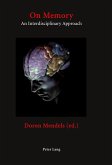This work is about the swift process of acculturation of antisemitism in Japan - a Shintoist/Buddhist society with no Jews - in the decade following the First World War due to the impact of The Protocols of the Elders of Zion. Major Japanese primary sources related to the subject are introduced in detail and analyzed in the book for the first time in any language: the 1921 Imai Tokio-Yoshino Sakuz impromptu debate, Higuchi Tsuyanoske's best-seller Yudayaka [The Jewish Peril], the March 1929 roundtable on the «Jewish Problem» organized by the Heibon publishing house, and writings by Ariga Seika, Soebe Inchinoske, Yamanaka Minetar , Kinoshta Masao, and others. This is also the case with most materials mentioned in the section on Japanese awareness of antisemitism before and during the First World War. In addition, the author proposes, defines, and demonstrates the applicability of the term «Conspiracy and Scapegoating Antisemitism» to both non-Japanese and Japanese milieux.
«Most Japanese have never met a Jew, or they do not know it if they have. That has not prevented the rise of vigorous, indeed fanatical antisemitism, based on European documents of the nineteenth and twentieth centuries. The most important is The Protocols of the Elders of Zion, a fraudulent, fantastic work from the end of the nineteenth century about a worldwide Jewish conspiracy to rule the world. The Protocols arrived in Japan in 1919 and were immediately influential across a wide spectrum of society, including military officers, bureaucrats, and intellectuals. ... We all know the disastrous results of unchecked virulent antisemitism. Japanese antisemitism will never amount to anything but local discomfort and discrimination, but Jacob Kovalio is wise to study the phenomenon.» (John S. Brownlee, Professor Emeritus of Japanese History, University of Toronto)
«Sharply focused and highly readable, Jacob Kovalio's study illustrates the appearance of antisemitism in Japan, a society without Jews. The author's trenchant analysis demonstrates how the PROTOCOLS of the ELDERS of ZION, a document fabricated at the turn of the twentieth century in tsarist Russia by antisemitic regime loyalists, inflamed Judeophobia throughout Christendom, and even within Japan sparked an anxious concern that a two-millennia-long conspiracy by Jews to seize control of the world was on the verge of realization. Kovalio's carefully crafted account shows that significant segments of Japan's intellectual, political and military elites took the 'Jewish Peril' portended by the PROTOCOLS very seriously, despite overwhelming evidence that the document was spurious. The author notes insightfully that Japan today still reflects the impact of the PROTOCOLS legacy, in mass-market antisemitic diatribes against the evils and dangers of Jewish 'control' of the world's financial institutions, as well, paradoxically, as in ostensibly benign and complimentary over-estimations of Jewish intelligence, competence and courage. This work provides compelling reading for those with world-historical interests in the globalization of ideas, and offers fascinating cross-cultural perspectives on what Leon Pinsker once termed mankind's apparently inescapable forays in to 'demonopathy', the most significant manifestation of which in recent centuries has been Judeophobia.» (Gordon Berger, Professor Emeritus of Japanese History, UCLA)
«Sharply focused and highly readable, Jacob Kovalio's study illustrates the appearance of antisemitism in Japan, a society without Jews. The author's trenchant analysis demonstrates how the PROTOCOLS of the ELDERS of ZION, a document fabricated at the turn of the twentieth century in tsarist Russia by antisemitic regime loyalists, inflamed Judeophobia throughout Christendom, and even within Japan sparked an anxious concern that a two-millennia-long conspiracy by Jews to seize control of the world was on the verge of realization. Kovalio's carefully crafted account shows that significant segments of Japan's intellectual, political and military elites took the 'Jewish Peril' portended by the PROTOCOLS very seriously, despite overwhelming evidence that the document was spurious. The author notes insightfully that Japan today still reflects the impact of the PROTOCOLS legacy, in mass-market antisemitic diatribes against the evils and dangers of Jewish 'control' of the world's financial institutions, as well, paradoxically, as in ostensibly benign and complimentary over-estimations of Jewish intelligence, competence and courage. This work provides compelling reading for those with world-historical interests in the globalization of ideas, and offers fascinating cross-cultural perspectives on what Leon Pinsker once termed mankind's apparently inescapable forays in to 'demonopathy', the most significant manifestation of which in recent centuries has been Judeophobia.» (Gordon Berger, Professor Emeritus of Japanese History, UCLA)








